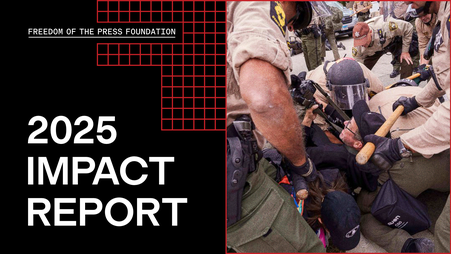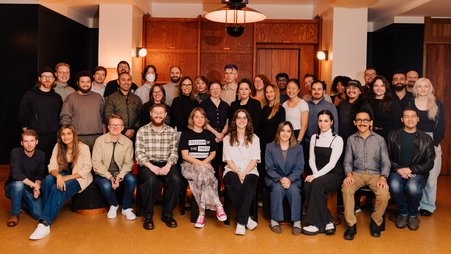
Today is one of the most important days in the history of Freedom of the Press Foundation, and especially for SecureDrop, our open-source whistleblower submission system used by over 70 news organizations worldwide. Let me explain.
We have long been strong believers that open source technology — specifically privacy preserving tools that don’t attempt to make money through the traditional surveillance capitalist model — can have an outsized impact on protecting our rights online. In times where governments and tech giants have unprecedented surveillance capabilities, policy and legal protections often don’t shield reporters from having their sources exposed. Projects like SecureDrop are vital for enabling important investigative reporting in the digital age. While news outlets are understandably tight-lipped about how they use SecureDrop, the proof is in the pudding.
But herein lies the conundrum: while open-source software tools can be more impactful in protecting press freedom than anything else, they are also the hardest to fund. Many traditional foundations don’t have the expertise or ability to evaluate software projects, and are wary of directly funding their development. The few grantmaking outfits who specialize in open-source software development sometimes only fund prototypes or new projects, which leaves the tools journalists likely rely on most — those that have a track record of success — in a perilous funding desert.
In many ways, we’ve been lucky. Despite the many fundraising difficulties that open-source tools often face, we’ve had the benefit of loyal support from donors with long-term vision. With their help, we’ve been able to sustain the project. But developing and maintaining high-risk software which is relied on by so many journalists all over the world is also very expensive, and it means cobbling together support from dozens of different sources. SecureDrop represents 40% of Freedom of the Press Foundation’s $4 million budget, yet it is still drastically underfunded compared to for-profit tools of all kinds.
Over the past eight years, we have slowly grown our SecureDrop team by piecing together dozens of general support grants, private donations, and support contracts from news organizations. And while we’ve had great success compared to many other open-source projects, it always feels like a precarious position — especially given how many journalists and whistleblowers rely on SecureDrop for protection.
Today, for the first time, that calculus has changed. We’re thrilled to announce the largest grant in the history of Freedom of the Press Foundation that will ensure SecureDrop survives — and thrives — for years to come. The Filecoin Foundation for the Decentralized Web — a new grantmaking organization whose mission is to permanently preserve humanity’s most important information — is funding FPF at over $1.7 million for each of the next three years, for a total of $5.8 million.
The funding will largely go towards sustaining and expanding our SecureDrop team, funding the development of the next-generation of the system, including exploring a new zero-trust architecture for the decentralized servers. This grant will ensure that SecureDrop will not only be sustainable over the long term, but will be easier to use and hopefully safer than ever. In short, it will have a game-changing impact on how we can build and improve SecureDrop for journalists around the world. You can read about some of our technical plans for the future here.
In addition to helping upgrade SecureDrop, FPF will leverage its collaboration with FFDW to support several other efforts critical to safeguarding free speech, a free press, and the preservation of critical information using the decentralized web. Some of these projects include: publishing our comprehensive U.S. Press Freedom Tracker data on the decentralized web every year, exploring how we can further help news outlets who are under threat of being taken offline, and evaluating state-of-the-art privacy preserving tools within the decentralized web ecosystem that could provide network-level anonymity in decentralized web projects, in addition to our existing reliance on the Tor network.
We are incredibly grateful to the Filecoin Foundation for the Decentralized Web for believing in our mission and our results. And we can’t wait to get to work.




